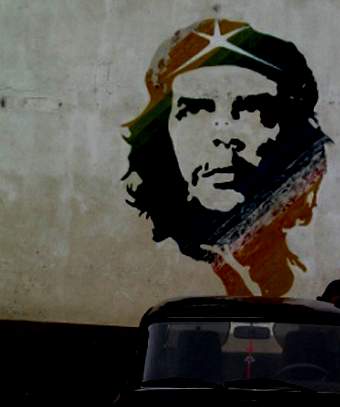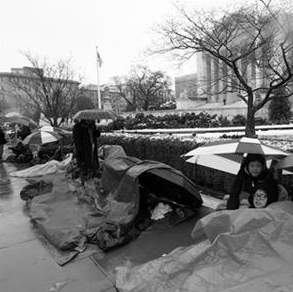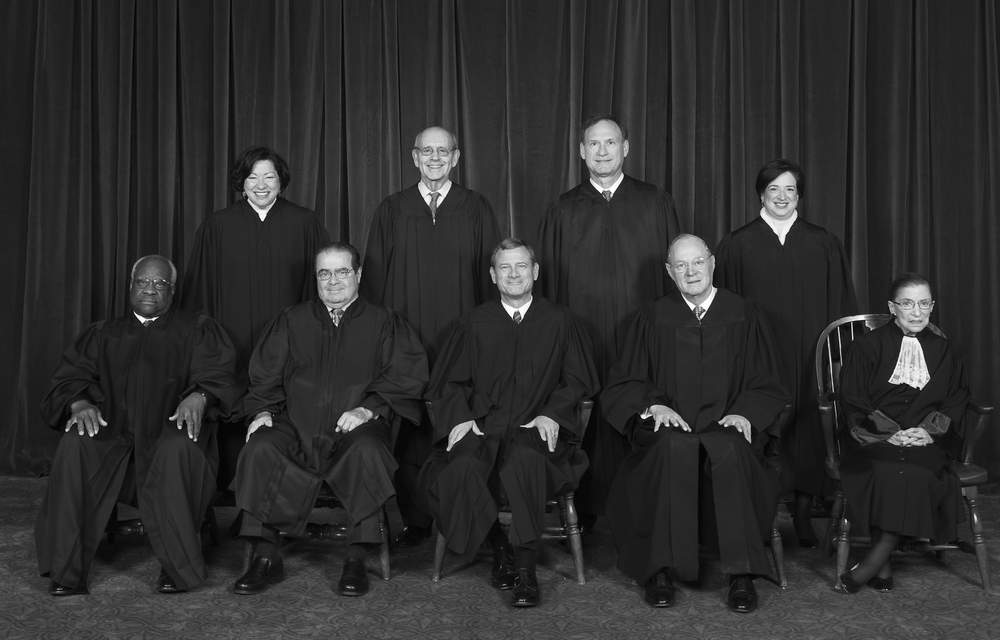Podcast: Play in new window | Download
Updates:
- MOMA Suggested Donation Lawsuit
—-
Michael Smith and Dennis James Discuss Cuba Trip
Co-host Michael Smith and attorney Dennis James recently returned from Cuba on a trip led by the Center for Cuban Studies. Dennis is a civil rights lawyer formerly of Detroit and former Executive Director of the National Lawyers Guild. The trip was undertaken to appreciate the fundamental changes now going on in Cuban law with respect to travel, home, car and business ownership. The discussion leads into the possibilities of an economic rejuvenation in Cuba.
Attorney Dennis James:
- The people of Cuba had a strong identification with the revolution they made.
- Cuba is theirs and nobody else is going to tell them how to run it.
- They have a lot of complaints about shortages, but they’re very appreciative of the basic needs of life that are provided for.
- The Cuban government did a thorough and multi-level canvassing of the population through its national assembly and committees for the defense of the revolution.
- Talking to the people on the street, they remember this process that went on.
- The government watches which enterprises make sense, which ones are succeeding.
- The ones that are succeeding and paying taxes, employing people are encouraged.
- Book: The Man Who Loved Dogs
- Book: Cuba, What Everyone Needs To Know – Julia Sweig
- There’s a colony of people in Melia Cuba that practice what they call naive art.
- I think its naive in the sense that it’s self taught.
- They do wonderful paintings, these are doctors, lawyers, bakers, bus driver, cops, sugar mill workers.
- Their work is encouraged, given exhibits in Havana.
- Sandy Levinson – The Center for Cuban Studies.
- We’re not talking about the flag waving, hammer and sickle brandishing socialist realism of China and Russia, we’re talking about wonderful expressions of culture.
Guest – Dennis James, a civil rights lawyer formerly of Detroit and former Executive Director of the National Lawyers Guild.
——–
Supreme Court On Gay Marriage
Last week the Supreme Court heard oral arguments on two historic cases that could establish the constitutional right for gay marriage. The first case, Hollingsworth v. Perry is a challenge to California’s voter-approved ban of same-sex unions in 2008. Six months after the California Supreme Court endorsed gay marriage, voters passed Proposition 8 which amended the state’s constitution to only recognize marriages between a man and a woman. Lower courts had declared the gay marriage ban to be unconstitutional. The second case the Supreme Court heard was a challenge to the 1996 Defense of Marriage Act. This act bars married gay couples from receiving federal marriage benefits such as Social Security and family medical leave.
- On the Prop 8 case, I would certainly question the issue of standing which the court is from their argument also taking quite seriously.
- It’s actually an incredibly important issue in civil rights law where groups of people want to assert an interest in an overarching public issue like the right to marry.
- I’m of the view that this should never have been brought.
- The movement lawyers really argued for Boise and Olsen not to bring the case. Boise and Olsen lobbied quite hard to keep the movement lawyers out of the case.
- When the law gets out ahead, and the lawyers get out ahead of the movement that support them, often we do more damage than good when we get to the Supreme Court too soon.
- We have movement lawyers in the lesbian and gay community and of course they don’t all agree with each other, its a complicated movement. But there was a sense that they were going to go state by state, and build legal consensus around the issue of marriage rights and around a set of arguments that weren’t going to hurt gay and lesbian people who didn’t marry.
- Boise and Olsen thought they would do a better job raising the issue of marriage than the movement lawyers have. They’re carrying a brief for marriage, not a community who have a diverse set of interests, marriage being only one of them.
- DOMA, the Defense of Marriage Act is a law that unfortunately President Clinton signed in 1996. It was basically a homophobic cry from the Congress to limit on the federal level any definition of a marriage to between a man and a woman.
- If you’re a federal employee, if you’re married you can put your spouse and dependent children on you health insurance.
- If you’re not married, you can’t.
- Edie Windsor is the plaintiff in the DOMA case but when her partner of many many years past away, Edie inherited under the will, her partner’s property they jointly owned together. Under federal tax law it says if they were strangers to one another, so Edie had to pay about 360 thousand dollars in inheritance taxes for the property she had owned with her partner.
- There was a coalition of large corporations that filed a brief and said actually
- The political alignment on this issue has really shifted at a rapid pace in the last year.
- I direct our center on gender and sexuality law.
- I’m actually now teaching for the first time a class on the law of occupation so we’re looking at Iraq and Palestine and the United States, Puerto Rico and Hawaii. To understand whether the law can be a force for good when military force is like the Israelis or like the Americans occupying other sovereign states.
- We’ve got a really great new project engaging tradition and thinking about arguments based in tradition, that have been used traditionally to undermine sexually based justice claims.
- Those issues come up in the marriage context all over the place.
Guest – Professor Katherine Franke, the Isidor and Seville Sulzbacher Professor of Law; Director, Center for Gender and Sexuality Law at Columbia Law School.
—————————————————————–



